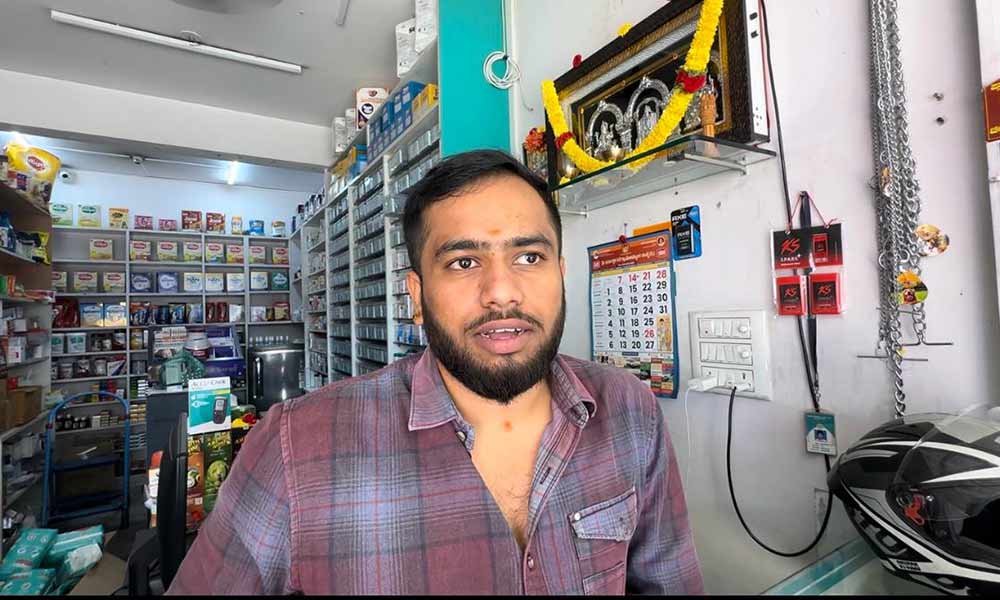According to a study by the Government Medical College, Nagpur, 60 percent people in India practice self-medication. Doctors say it leads to resistance to medication and delay in diagnosis of an ailment.
Nandita thought she had a mouth ulcer. Going to a doctor seemed complicated so she went to a nearby pharmacist who gave her an ointment and an antibiotic. She didn’t get better, but she thought she must give it time. Little did she know she had made matters worse. She had contracted a fungal infection that would need more treatment.
Nandita is among the thousands of people who either self-medicate or take dodgy treatment over the counter from a pharmacist.
Dr. Prajwal K.C., consultant physician at P M Santosha Clinic in Sunkalpalya, Kengeri said that people have been practicing self-medication because they think doctors are expensive. However, basic medicines like paracetamol can have serious side effects in some cases. People should consult the right person before taking any medication as it can have serious repercussions. He said that 90 percent patients come after self-medication.
“We start treatment for any infection with basic antibiotics and then we increase the dosage based on the symptoms. But, people tend to practice self-medication which leads to resistance towards the antibiotic itself,” he explained.
Nandita, who works at a multinational company, finally went to a doctor who diagnosed her with a fungal infection that had worsened by the medications she was taking. It took her a month to recover with the prescribed medication before she could finally eat food with common spices.
According to the study published by Cureus, in Jan. 2023, self-medication is frequently used for fever, body aches, common cold, and cough. The study enrolled a total of 400 participants above the age of 18 years.
According to the study, people educated above the high school level had more chances of self-medicating than those educated less than high school. The study revealed that the most common reasons for self-medication are that it saves time and money and the condition is not serious enough to consult a physician. Apart from pharmacists and family members, other sources of information about drug consumption include advertisements and the Internet.
The salesperson at Ramdev Medical store on Uttarahalli main road, Kodipalya said that most people come to get medicines without a prescription. He usually does not ask for any prescription for basic medicines like paracetamol, painkillers, anti-allergic medicines, and gastric medicines.
According to the Regulation of Sale of Schedule-H Drugs Bill, 2020, it is mandatory for pharmacies to not sell drugs causing serious harm under Schedule-H without a prescription. However, medicines that are safe for public use are allowed to be sold without a prescription. These include anti-hemorrhoid drugs, topical antibiotics, cough-suppressants, anti-acne drugs, and non-steroidal anti-inflammatory medicines.
Dr. Karuna B. Atyale, a general physician said that one of her patients got his mother, who was a nurse, give him an anti-tetanus injection for a wound. It was injected subcutaneously (under the skin) instead of intramuscularly (sub dermal), which caused swelling. He had to take additional medication.
She added that the government should take steps to regulate the flow of medicines as abortion pills and sleeping pills are also easily available at pharmacies. These medicines have a lot of side effects that are discovered in the longrun. She said that basic medicines like for loose stools and cough should be available, especially in small places like villages where the doctor is not always available but there is a need for more awareness and education about the use of self-medication and its consequences.
Priya, a public health expert said that a one-time prescription should be given to prevent patients from using the same drugs if they experience comparable symptoms in the future. She added that medicine distribution should be controlled so that pharmacists can only prescribe basic medications to treat conditions like the common cold, the flu, fever, and other illnesses—nothing beyond their areas of expertise.




